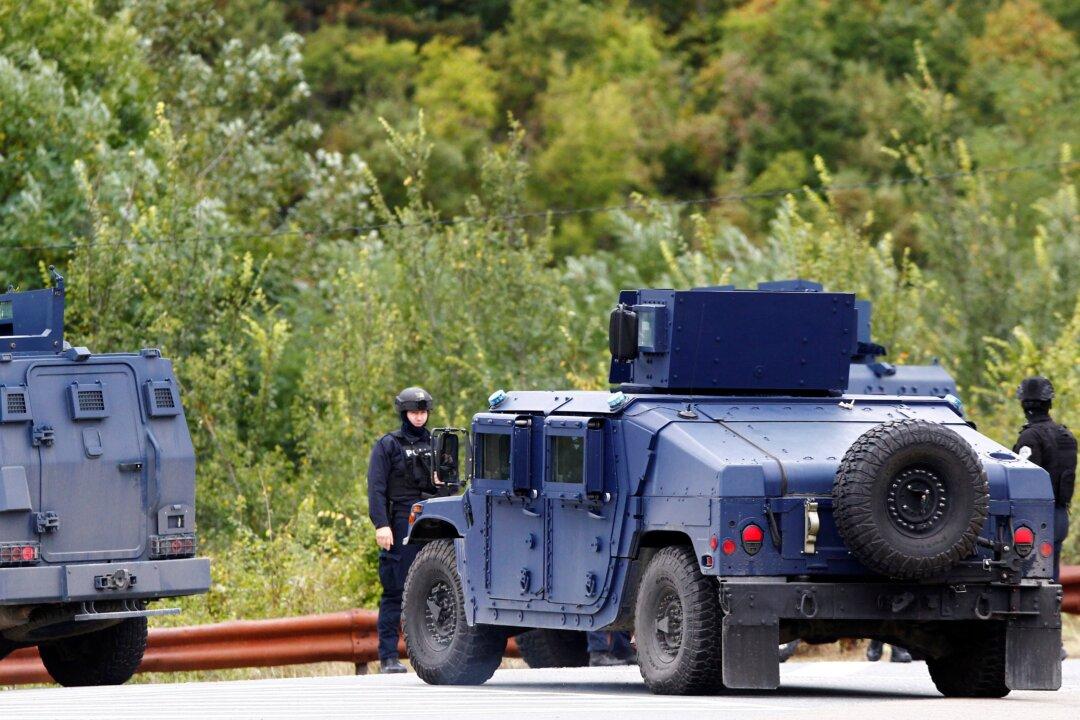JOSEVIK, Kosovo—Kosovar police units in armored vehicles moved in to secure and search a village in north Kosovo on Monday, a day after four people were killed in a shootout there between police and ethnic Serb gunmen in the restive region.
The gunmen stormed the village of Banjska on Sunday, battling police and barricading themselves into a Serbian Orthodox monastery. Police retook the monastery late on Sunday, after three attackers and one police officer were killed.





